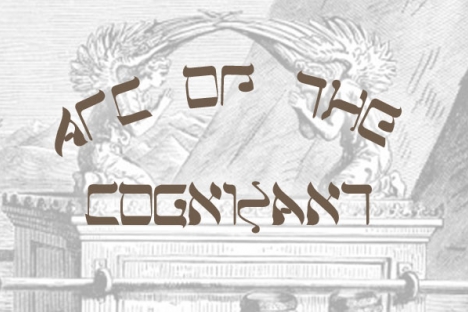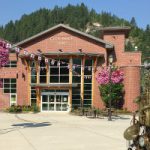Column: Choose your government: Canadians and a perilous future
The moment, the prospects, the significance
This is my second and final column on the federal election at hand.
I write this feeling very uncertain about what Canadians want from politics. I have just recently told a friend in a conversation about the election – one of many – that I think conservatism in Canada is weak. But I wonder…
It is historical fact; corporations have been forces for conservative values in Canadian and American society, conservative as relates to rights of property and future socio-economic prospects. Commercial values are material values; Canadian visions of human progress are materialistic.
If there has been progress, one must have an historical sense of what Canada has been, to measure the present against the past. This is not the wrong time or place, in this election campaign, to think about our history. It is exactly the right time.
Here we are, four hundred years after Europeans came to the Americas and began to colonize it, and 200 years after the Industrial Revolution began in England and transformed our world. How do you like it so far?
Europeans imposed an alien notion of property on the people who were here before us, and told themselves that their higher civilization, higher religion and/or more evolved fitness for survival justified what they did. Our standard of living measured by our scientific economists got higher and higher with each passing generation. Our Science prolonged life by medical and technological breakthroughs, and the amount each individual Canadian head of family could own and spend and invest, grew, decade over decade, from1850 to 1980.
By now there are some minds in my audience closed against me. One might suspect I am preaching against a “style” of life, and that I might be judging an individual’s personal achievements. I do have judgments, but here I do not want to talk about individuals and their choices; I am focused on this nation, the communal entity, Canada.
The Good Life
What do I not like in the historical narrative of Western Progress? Two things spring to mind:
(1) Injustice to those with whom the wealth is not shared, in spite of their deserving a share.
(2) Devastation of the earth due to our economic activity, as if we own the earth for our sole use.
It is hard to make a case that material progress is worth the painful consequences of those two wrongs. They cannot be justified.
If the wealth that middle-class Canadians have enjoyed for the past few decades were equaled for every person on earth, we would need five more planet earths to do it. For all to have that “standard of living” within the existing systems of economic activity, we would need five Earths and no more humans added.
It is already true that the generations coming after the Baby Boom are downwardly mobile, not climbing upwardly in standard of living. They will be the first post-settlement generations to have less in Canada and the USA.
The economics of perpetual growth are grinding toward paralysis. What do Canadians do then? What can we do before collapse forces us into new directions?
It’s time to address Canadians’ collective, community, national responsibility, and even Western civilization’s responsibility, for the state of the world.
Forced change or free choice: outer circumstance or personal reinvention
My view of the future expects dark scenarios. The USA has already descended to a level of social chaos we have not seen yet, its inequalities are dire, its potentials for civil and economic wars are far more threatening than they were 50 years ago. Another American civil war would be catastrophic for Canada, for our peace and affluence.
Is Canada peculiarly blessed to never suffer what our so-rich neighbor has been experiencing? History has revealed a pattern: Canada follows American precedent rather than avoids the unravelling of the USA. Economically, it is near-impossible to separate us. We’ll fall into unimaginable scenarios of social and economic crisis if they are fighting a civil war.
Do you see the world going on much as always, as it has for the last few centuries? Our part of the planet called Canada remains wealthy, its middle class is affluent, well-fed, long-lived, and at the leading edge of scientific and economic progress? If that is your vision and you want that to be true, there are some things left out of your perspective.
What if the sharing of wealth and the good things of life becomes limited to a very narrow fraction of Canada’s population?
What if environmental degradation means parts of our territory are damaged, and people flee from drought, flood, food-scarcity, to other parts? …to the Kootenay region?
And outside Canada — what about the fate of so many humans not lucky enough to be citizens here? Do we think about that? Do we declare all [non-criminal] refugees who get here will be welcomed?
The Great Divide
Two issues will divide Canadians like a razorblade passing through our politics. Immigration policy is one, capitalist “development” by market norms is the other. We will disagree forcefully over whether our land ought to take in large numbers of new citizen-consumer-producers. We will divide on the question of going forward as we have operated in the past, as a market-capitalist economy. If we keep the latter, it determines how we will decide questions of population.
At the end of this column, I have appended a brief list of books I think offer clear answers to the coming questions around population and economy, and they are not agreed in fundamentals. There is no consensus about solutions.
Act as if your choices matter
New ways of living, that share wealth and preserve the planet, can be started in small communities. Each of us owns a share in the changes. Citizens in free democracies must play their role with leadership and resources to transform “normal.” Nelson is in Canada in the world and we are simply hurting our own well-being if we do not think and act to stop the mechanisms of economic misery and environmental deterioration from continuing to rule our lives.
I wrote above that personal, individual life-choices were not my focus. Now I change my focus. I do want to speak to individual motive, values, behaviour. There is no avoiding this question inside your own head — what am I doing, to end what is bad and to bring new and better things into creation? How might what I do in Canada, in BC, change this world?
A thoughtful, conscious citizen will examine what contribution we who live in the Kootenays can make.
Canada may provide an affluent life for many today, but there is a reckoning due, and a transformation that must be made. We can fight the change or be part of it. We can sleep-walk to the edge of catastrophe — right up until the systems of money, of ecology, of world order, collapse under the pressure of the impossible dream of endless growth. Or we can wake up now, and be doing good no matter what cynical voices say about too little too late.
It is so much better to have lived like we believe in our ability to do good, than to deny that we have the power to improve other lives by changing our own.
Conclusion
The West – the rich world — needs to stop growing. We need an economy that does not depend on growth; Greta Thuneberg is a beacon for this perspective. Each one of us in the rich world can begin to live as if the future demands we own less, produce less trash, bring less from far away, and consume less of the earth’s resources. Discard your “bucket list” of what you must have or do…
We have a moral and spiritual responsibility to make this one small place we govern into a more-just model of living and livelihood. It begins by saying Canada is not dedicated to growth. We give up the more-population-more-development model dependent on extracting oil or water or any natural resource that destroys ecology. When our prime minister tells “oilmen” that no country would find “73 billion barrels of oil in the ground and leave it there” and “the resource will be developed,” one knows exactly what his vision of Canada is. That perspective must be terminated as a viable option for society.
Justin Trudeau’s plan to add three-hundred-fifty thousand new citizens per year is backward-looking. It is wrong; we ought not grow, unless we distribute wealth much more equitably. Scheer is in perfect harmony with the Trudeau vision. Neither of these men deserves to exercise power here. But they will. One of them will be the leader of our nation after October 21.
Canada’s federal electoral contest might seem a strange occasion for thoughts and words such as these to be put forward for public consideration. But I say if not now and here, then when and where? This is when Canadians express our political will. Manifest your best.
__________________________________________________________________________
TheArc’s authorearnestly recommends, “Read these books.” They are detailed, historical, and offer views of possible futures based on profound reflection and probing research.
1. Doug Saunders, Maximum Canada. [Canada’s future growth under the model of capitalist development that operated in our history.]
2. Charles Eisenstein, Sacred Economics, particularly Ch. 4 to 8 and last.[an alternative economic model.]
3. Naomi Klein, This Changes Everything: Capitalism vs. Climate Change. [from one of the authors of “The Leap Manifesto.”]
And for an easy-to-read history of how Canada dealt with its worst poverty and poorest economy in our past, check out Pierre Berton’s The Great Depression. It should make you think hard about what to expect from governments if, as I believe, Canada and the world are headed into dim, grim times.


























Comments